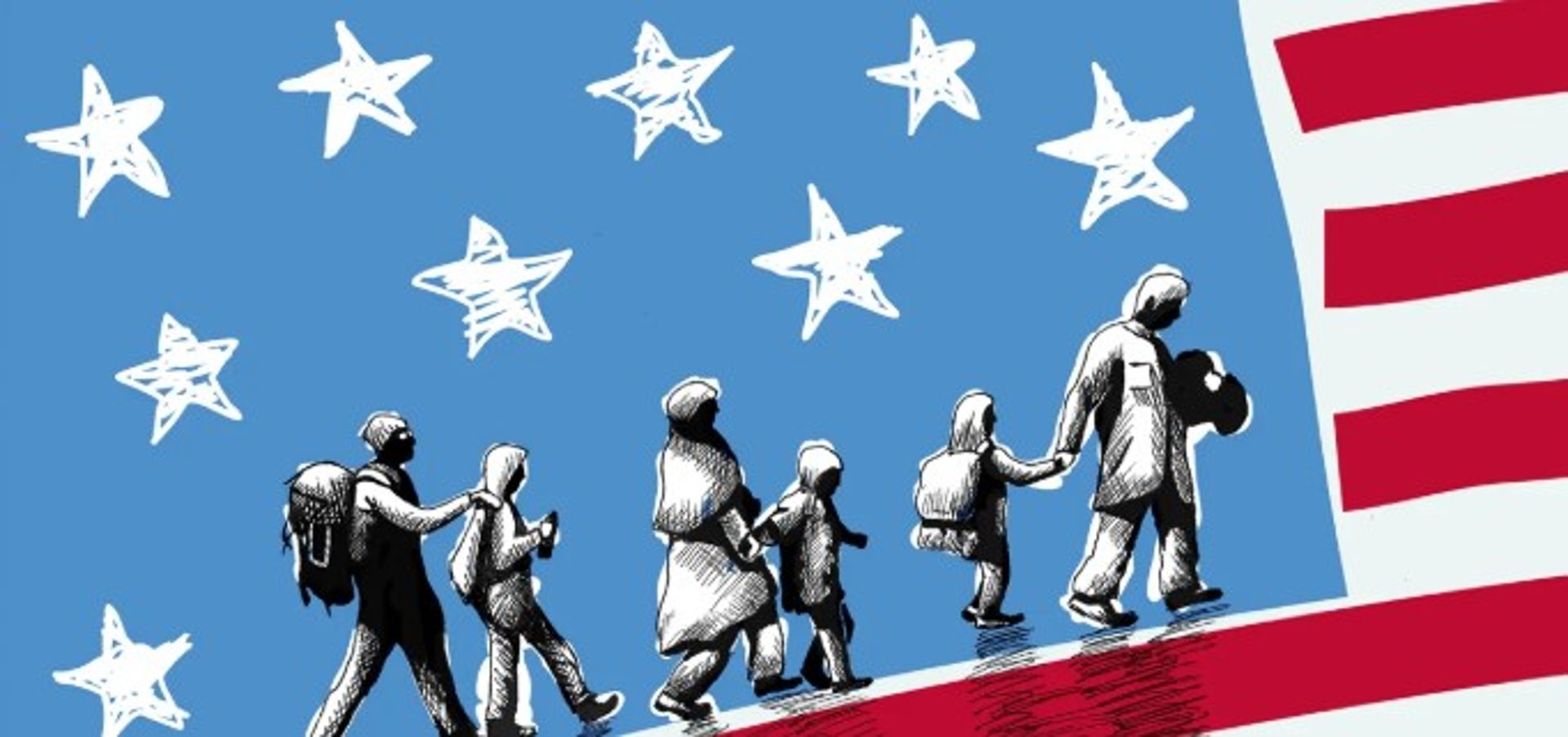
Questions & Answers
Book your Free Consultation for immigration services, including green card and legal defense assistance today.
Frequently Asked Questions
Welcome to our comprehensive Immigration Law Q&A page. Whether you're exploring your options or already working with an attorney, the answers below are designed to help you understand the immigration process and how Burt & Ngo, P.C. can support you.
ICE Custody and Deportation Defense
Q: My family member was just taken by ICE. What should I do first?
A: Try to get your loved one’s full name, A-number (if available), and where they are being held. Then contact an immigration attorney immediately. At Burt & Ngo, P.C., we locate your relative in the ICE system, review any prior history, and quickly advise you on bond and defense options.
Q: Can my loved one get out of ICE detention on bond?
A: In many cases, yes. Eligibility for bond depends on things like criminal history, prior immigration orders, and the type of charges in the Notice to Appear. We evaluate the case, request a bond hearing when possible, and present evidence to show the judge your loved one is not a danger or flight risk.
Q: How quickly can you help if someone is detained?
A: We move as fast as possible. Once you contact us and provide basic information, we work to confirm detention, obtain the court and hearing information, and start preparing for bond or the first court appearance.
Q: What if my spouse already has a deportation order?
A: A prior order does not always mean the case is hopeless. In some situations, we can file a motion to reopen based on new evidence, changed country conditions, or serious problems with the original case. We review the file and tell you honestly whether there is a realistic path to reopen or stay removal.
Q: Do I really need a lawyer for a “master calendar” hearing?
A: Yes. Even though the master calendar hearing is short, the judge will ask your loved one to admit or deny the government’s charges and choose what type of relief to apply for. Saying the wrong thing can damage the case. We appear in court, speak for your loved one, and make sure the right defenses are requested.
Q: What kinds of defenses exist in deportation cases?
A: Common forms of relief include non-LPR cancellation of removal, asylum and withholding of removal, protection under the Convention Against Torture, waivers, and family-based or humanitarian options. We review your family ties, length of time in the U.S., criminal history, and fear of return to identify every defense that may apply.
Q: Can you represent us if the detention center or court is in another state?
A: Yes. Immigration court is federal, so we can appear for clients in many different states, including detained courts. We handle most communication with families by phone, Zoom, or WhatsApp while we represent your loved one in court.
Removal Defense & Immigration Court
Q: What should I do if I get a Notice to Appear (NTA)?
A: Contact an immigration attorney immediately. An NTA means removal proceedings have been initiated. Timely legal response is critical.
Q: Can I apply for a green card while in removal proceedings?
A: Yes, in some cases. You may be eligible through cancellation of removal, asylum, or adjustment based on marriage to a U.S. citizen.
Q: What happens if I miss my immigration court hearing?
A: Missing your hearing can lead to a deportation order in your absence. If this happens, you may still have options, but act quickly.
Q: Can I reopen my case if I already have a deportation order?
A: Possibly. If there is new evidence or legal error, a motion to reopen may be filed. Deadlines are strict, so contact an attorney promptly.
Q: Can I ask the court to close my case?
A: Yes, through prosecutorial discretion or administrative closure. Eligibility depends on your background and immigration history.
General Immigration Questions
Q: Do I need an immigration lawyer?
A: While it is possible to apply for some immigration benefits without an attorney, immigration law is highly complex. An attorney ensures your application is complete, timely, and positioned for success, especially if your case involves past immigration violations, criminal history, or inadmissibility.
Q: How much does it cost to hire an immigration lawyer?
A: At Burt & Ngo, P.C., we offer transparent flat-fee pricing for most services. Costs vary depending on the type of case (e.g., green card, asylum, U visa). Please see our pricing page for specific rates.
Q: Can I work with your firm if I live in another state?
A: Yes. Immigration law is federal, so we can represent clients in all 50 states. We conduct meetings by phone, Zoom, or WhatsApp.
Q: How long does the immigration process usually take?
A: It depends on the type of case. Some work permits may be approved in a few months, while green cards or waivers could take a year or more. We provide realistic timelines after your initial consultation.
Q: What happens if my application gets denied?
A: Many decisions can be appealed or reopened. We'll evaluate your denial and advise you on next steps, which could include motions to reconsider, appeals, or refiling.
Q: Do you handle immigration court cases?
A: Yes, we represent individuals in removal proceedings, bond hearings, cancellation of removal, and more.
Q: Can you help undocumented immigrants?
A: Absolutely. Many undocumented individuals qualify for relief through VAWA, U visas, asylum, or cancellation of removal. Each case is unique.
Green Card & Adjustment of Status
Q: What is a green card?
A: A green card (lawful permanent residence) allows you to live and work in the U.S. permanently. You may obtain one through family, employment, asylum, or other special categories.
Q: What’s the difference between adjustment of status and consular processing?
A: Adjustment of status is done inside the U.S. Consular processing involves attending an interview at a U.S. embassy abroad. Your eligibility and location determine which process is appropriate.
Q: How long does it take to get a green card?
A: Timelines vary by case type. For immediate relatives of U.S. citizens, the process may take 8–14 months. For others, such as siblings or married adult children, the wait can be several years.
Q: What happens after I get my green card?
A: You'll be a lawful permanent resident, free to work and travel. In most cases, you can apply for U.S. citizenship after 3–5 years.
Q: Can my spouse or children get a green card too?
A: Yes. Immediate relatives may be eligible as derivatives, depending on your status and the type of application.
Work Visas & Employment-Based Immigration
Q: Can I get a work visa without a job offer?
A: Most employment-based visas (H-1B, L-1, etc.) require a U.S. employer sponsor. However, certain visas like the EB-1 for extraordinary ability or investor visas (E-2) may not.
Q: Can I switch employers on a work visa?
A: It depends on your visa type. Some require new employer sponsorship and USCIS approval before switching.
Q: What is the H-1B cap and lottery?
A: The H-1B visa has a numerical cap and uses a lottery system. Registrations are submitted in March for each fiscal year.
Q: Can students on F-1 visas work?
A: Yes, but with restrictions. On-campus jobs are allowed. Off-campus employment like OPT or CPT must be authorized by your school and USCIS.
Q: Can I change status from visitor visa to work visa?
A: In some cases, yes. This process requires careful legal analysis and approval by USCIS.
Humanitarian Options (VAWA, U Visa, Asylum)
Q: What is VAWA?
A: The Violence Against Women Act allows abused spouses, children, or parents of U.S. citizens or permanent residents to apply for lawful status without the abuser's involvement.
Q: What is a U Visa?
A: The U Visa is for victims of serious crimes who cooperate with law enforcement. It provides work authorization and a path to a green card.
Q: Can I apply for asylum after being in the U.S. for over a year?
A: Generally, asylum must be filed within 1 year of arrival. However, there are exceptions for changed or extraordinary circumstances.
Q: Will applying for asylum trigger deportation?
A: Not typically. Affirmative asylum applications are processed by USCIS. If denied and you're out of status, your case may be referred to immigration court.
Q: Can I apply for a work permit with VAWA or a U visa?
A: Yes. Both VAWA and U visa applicants may qualify for work permits at specific stages in the process.
Citizenship & Naturalization
Q: When can I apply for U.S. citizenship?
A: Most green card holders can apply after 5 years (or 3 years if married to a U.S. citizen). You must also meet physical presence, residence, and moral character requirements.
Q: What’s on the naturalization test?
A: The test includes questions about U.S. history, government, and basic English. USCIS provides free study materials.
Q: Can I travel while my naturalization is pending?
A: Yes, as long as you maintain residency and return in time for your interview and oath ceremony.
Q: Can I pass the test if I don’t speak English well?
A: You may qualify for a language exemption if you are over a certain age and have had a green card for many years. We can help determine your eligibility.
Q: What if I have a criminal record? Can I still apply for citizenship?
A: It depends on the offense and how long ago it occurred. Some crimes result in a denial or removal. Consult an attorney before filing.
Financial & Procedural
Q: Can I pay your fees in installments?
A: Yes, many of our services offer 3–5 month payment plans.
Q: What forms of payment do you accept?
A: We accept credit/debit cards, Zelle, bank transfers, and cash.
Q: Do you offer free consultations?
A: We offer affordable, low-cost initial consultations. In some cases, fees are credited toward your service if you hire us.
Q: Can I get a refund if my case is denied?
A: Our fees are for legal services rendered and are generally non-refundable. We explain all terms clearly in our agreement.
Q: Will you remind me of my deadlines?
A: Yes. We maintain a detailed case calendar and notify you of every important milestone or document request.
Still Have Questions?
We're here to help. Contact Burt & Ngo, P.C. to schedule a consultation and get personalized answers for your situation.
About Our Firm
Dedicated to providing expert immigration services tailored to your needs and guiding you through the complex process.




Services
Deportation and ICE Detention Defense
Contact
john@burtngo.com
888-318-9713
© 2026. All rights reserved.
